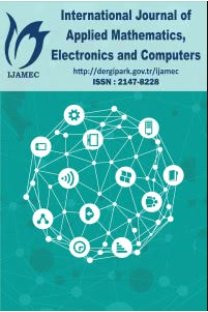Vehicle Brand Detection Using Deep Learning Algorithms
Today, information technologies are used in almost every stage of life. It seeks to find solutions too many issues and problems. Image processing applications have been widely used in many areas in recent years and are trying to solve problems. Many applications which perform tasks such as classification, counting, measurement, target tracking have been developed. The aim of this study is to provide a solution for different applications using an effective and cost-effective method to detect the brand and model of vehicles. A classification method is implemented using deep neural network in the determination of the vehicle brand. The proposed solution is tested on various images taken from different angles and obtained from different sources. Faster-RCNN method which is one of deep neural networks is used to brand detection of vehicles in this study. It is observed that Faster-RCNN method performs 67.66% classification accuracy.
___
- B. Płaczek “Vehicles Recognition Using Fuzzy Descriptors of Image Segments.” In: Kurzynski M., Wozniak M. (eds) Computer Recognition Systems 3. Advances in Intelligent and Soft Computing, Vol 57, 2009, Springer, Berlin, Heidelberg
- F. Rachmadi and K. E. Purnama ”Vehicle Color Recognition using Convolutional Neural Network” https://arxiv.org/pdf/1510.07391.pdf, last accessed, june 2019
- H. Saghaei, Proposal for Automatic License and Number Plate Recognition System for Vehicle Identification”, 1st International Conference on New Research Achievements in Electrical and Computer Engineering, 2016
- TK. Cheang and YS. Chong and YH. Tay “Segmentation-free Vehicle License Plate Recognition using ConvNet-RNN”, 2017, https://arxiv.org/ftp/arxiv/papers/1701/1701.06439.pdf, last accessed, june 2019
- J. Sochor, J. Špaňhel and A. Herout, “BoxCars: Improving Fine-Grained Recognition of Vehicles using 3-D Bounding Boxes in Traffic Surveillance” IEEE Transactions on Intelligent Transportation Systems 2019, Vol.20 , Issue: 1, pp. 97 - 108
- V. Vaquero, ID Pino, F. Moreno-Noguer, J. Solà, A. Sanfeliu and J. Andrade-Cetto, “Deconvolutional networks for point-cloud vehicle detection and tracking in driving scenarios”, 2017 European Conference on Mobile Robots (ECMR).
- M. Sheng, C. Liu, Q. Zhang, L. Lou and Y. Zheng, “Vehicle Detection and Classification Using Convolutional Neural Networks”. 2018 IEEE 7th Data Driven Control and Learning Systems Conference (DDCLS).
- R. Watkins, N. Pears and S. Manandhar, ”Vehicle classification using ResNets, localisation and spatially-weighted pooling, https://arxiv.org/pdf/1810.10329.pdf, last accessed, june 2019
- X. Pan, SL. Chiang and J. Canny,”Label and Sample: Efficient Training of Vehicle Object Detector from Sparsely Labeled Data”, https://arxiv.org/pdf/1808.08603.pdf, last accessed, june 2019
- A. Soleimani, NM. Nasrabadi, E. Griffith, J. Ralph and S. Maskell, “Convolutional Neural Networks for Aerial Vehicle Detection and Recognition”, IEEE National Aerospace and Electronics Conference, NAECON 2018.
- A. Nazemi, M. Shafiee, J. Mohammad, Z. Azimifar and A. Wong, “Unsupervised Feature Learning Toward a Real-time Vehicle Make and Model Recognition”, https://arxiv.org/pdf/1806.03028.pdf, last accessed, june 2019
- Tensorflow. (2018). About TensorFlow. last accessed: 29.11.2018, 2018
- OpenCV. (2019). About. https://opencv.org/about.html, last accessed: 17.02.2019, 2019,
- S. Ren, K. He, R. Girshick and J. Sun, ”Faster R-CNN: Towards Real-Time Object Detection with Region Proposal Networks”, https://arxiv.org/pdf/1506.01497.pdf, last accessed, june 2019
- TÜİK. (2017). Markalara göre trafiğe kaydı yapılan otomobil sayısı. In M. K. T. İstatistikleri (Ed.): TÜİK.
- ISSN: 2147-8228
- Yayın Aralığı: Yılda 4 Sayı
- Başlangıç: 2013
- Yayıncı: Selçuk Üniversitesi
